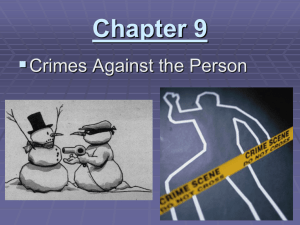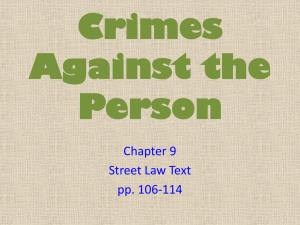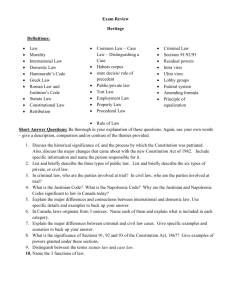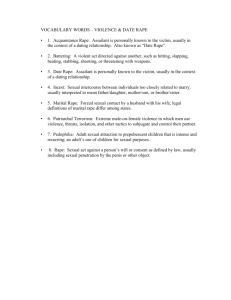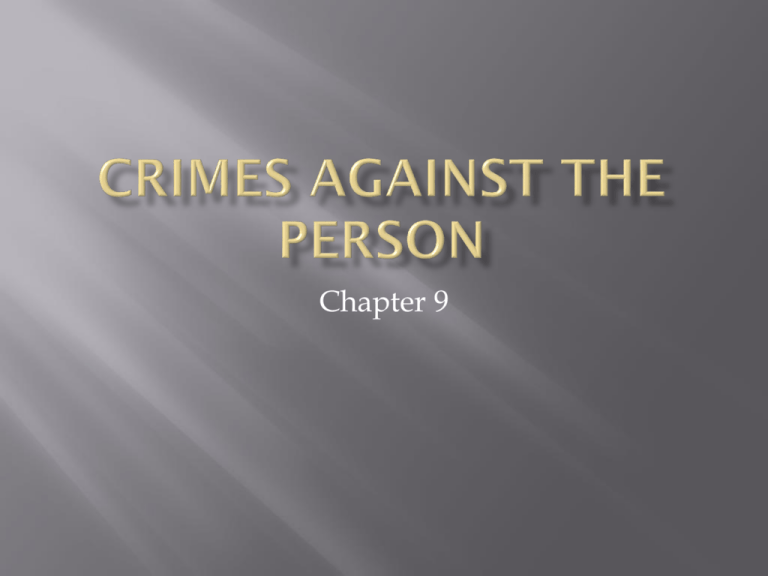
Chapter 9
Learn the types and elements of criminal
homicide
Be able to distinguish criminal from noncriminal homicide
Learn the elements of assault and battery
Understand the elements of the major sex
crimes
Homicide is the killing of one person
by another
Most types of murder require proof of
malice, an intent to kill, to seriously
harm, or acting in a manner that
shows disregard for human life
1st Degree—requires premeditation/
deliberation plus malice
2nd Degree—malice, but no
premed./delib.
Felony murder—killing that takes
place during commission of another
felony (malice presumed)
Voluntary manslaughter—killing done with
provocation—something the victim does to
the attacker that would cause a reasonable
person to lose control
Must be done “in the heat of passion” with no
“cooling off”
Example: John finds Bill kissing his wife and
shoots him
Involuntary manslaughter—killing resulting
from a non-intentional act (playing with a gun
that goes off)
Negligent homicide—death through criminal
negligence (lack of care)—vehicular homicide.
Usually requires gross negligence (really
extreme behavior)
Complete problem 9.1/9.2 on page 105
Alison and Brad need money to pay their bills
and decide to rob a bank. Brad drives the
getaway car. Alsion goes into the bank and pull
out her gun, announcinc, “This is a stickup.
Don’t move!” The bank guard Gordon, shoots
at Alison but misses, killing Dawn, a bank
customer.
Who can be charged with the crime of
homicide? Which degree of homicide should be
charged, give reasons
A killing that is justifiable or excused
Examples?
Law enforcement killings to stop/prevent
violent felonies
Soldiers in battle
Death penalty executions
Self-defense or defense of others
Is suicide/attempted suicide a crime?
Generally, modern legal codes treat it as a
mental health issue
“Assisted suicide” is still criminal
homicide in most states (3 states make it
non-criminal)
Assault—attempt or threat to carry out a
physical attack on a person
Battery—an unlawful physical contact
inflicted without consent (harm not
required, only intent to harm)
Most modern codes treat them the same
Are boxing/football/wrestling
considered battery?
Aggravated—may be based on use of a
weapon and/or degree of harm caused
Stalking—most states now make it a
separate crime to repeatedly harass or
follow a person
Rape—sexual intercourse without consent (is
not limited to traditional male-female
intercourse)
Statutory rape—intercourse between an adult
and a minor (lowered to 16 in many states)
Theory—minors are incapable of giving legal
consent
Sexual assault—sexual touching without
penetration
Date rape—victim and perpetrator know each
other
Can a woman be guilty of statutory rape of a
minor boy?
Rape shield laws—victim’s sexual history
inadmissible at trial

